Introducing the BMW series in the 90s earned a staunch reputation in the luxury motors market. However, with time, various models of BMW engines started showing specific issues. Due to this, multiple owners and drivers now wonder whether it is an excellent choice to get the BMW series.
The BMW engines that are recommended to avoid include:
- N54 BMW engine
- N52 BMW engine
- M54 BMW engine
- N20 BMW engine
- S85 BMW engine
- N47 BMW engine
- M60 BMW engine
I will discuss the seven BMW engines you should avoid in certain circumstances. So, stay along as I move forward.
Chart of Issues At a Glance:
BMW Engine | Common Issues |
N54 |
|
N52 |
|
M54 |
|
N20 |
|
S85 |
|
N47 |
|
M60 |
|
Issues with Specific Models:
1. N54 BMW Engine:
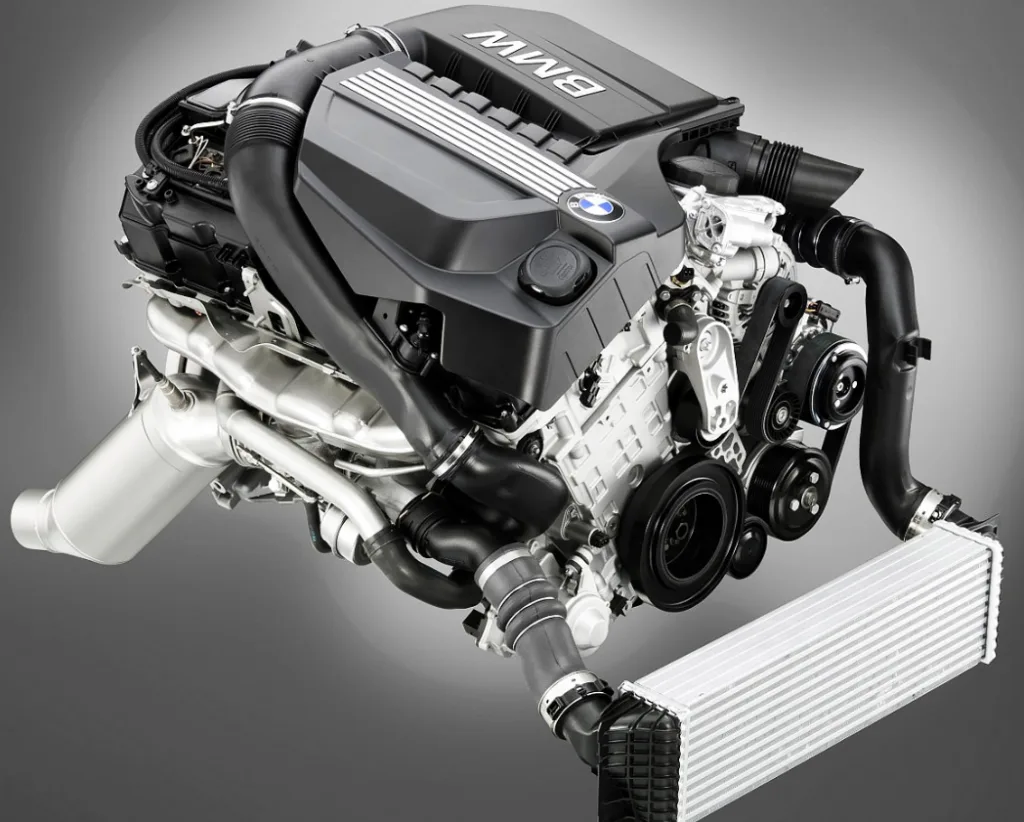
The N54 BMW engine was used in the BMW models between 2007 and 2010. But later on, the owners reported various problems with this engine, including leaks from the fuel injector and a failed water pump. It created delays in the engine’s performance and led it in the category of non-reliable machines.
Here, I will discuss some common problems of this engine, which include:
- Issues with the rod bearings
- Failure of VANOS system
- Problems with the cooling system
Problems with the Rod Bearings:
Rod bearings are an essential component in any vehicle, but BMW engines have reported a problem with this component, which disrupts the engine’s working.
These rod bearings can wear out quickly due to increased friction between them. It can lead to the failure of the engine and create unusual knocking sounds from the engine.
Failure of VANOS System:
VANOS is a valve timing system commonly seen in BMW engines, such as the N54 engine. The failure of this system can lead to poor engine performance and lower fuel efficiency.
It is better to look for the symptoms in the VANOS system, which can indicate poor performance.
Problems with the Cooling System:
The problems in the engine can arise when the cooling system stops working. The cooling system is strongly associated with the vehicle's expansion tanks, radiators, and water pumps.
The disruption in this system can create an accumulation of heat within the engine and damage it. It is, therefore, better to keep an eye on the cooling system to avoid the high costs of repairing it later.
2. N52 BMW Engine:
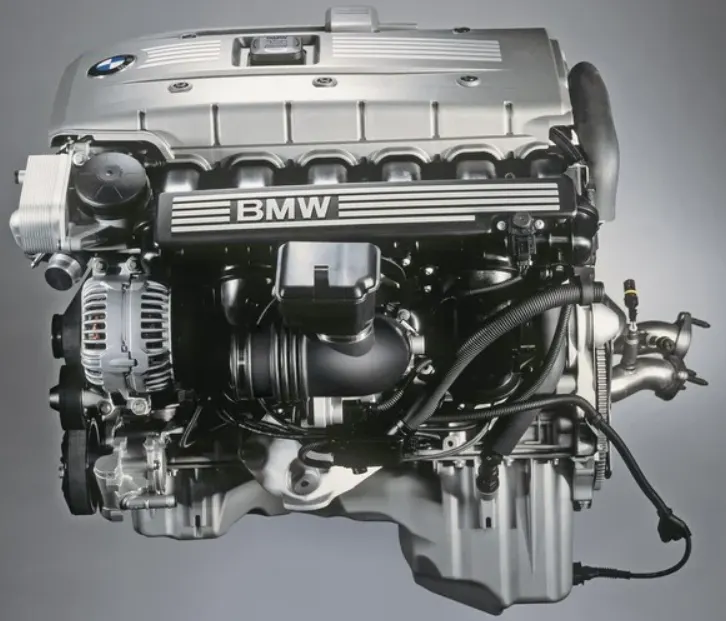
N52 BMW engine was introduced for models like E90, 330i, and 328i series, but later on. This engine was seen to report problems like failure of water pumps and leakage of oil in it.
Here, I will discuss some of the common issues reported by the N52 BMW engine, which lead it to the category of non-reliable engines.
- Issue with DPF
- Issues with Turbo Actuator
The issue with DPF:
DPF, also known as Diesel Particulate Filter, can create problems in an engine due to clogging of debris in it. This filter is mandatory in all diesel engines and works like a catalytic converter.
It neutralizes harmful gases but has a con: It gets clogged quickly. This clogging can block the working of DPF and affect the engine performance. It is, therefore, recommended to keep the DPF clean and free from debris to avoid consequences.
Issues with Turbo Actuator:
Issues with turbo actuators can also create a malfunction in the engine. Poor turbo actuators can lead the engine to generate minimum power.
It is recommended to fix the issues with the actuator, and if it requires repairs, you can rebuild it to avoid the annoying situation in the engine.
3. M54 BMW Engine:
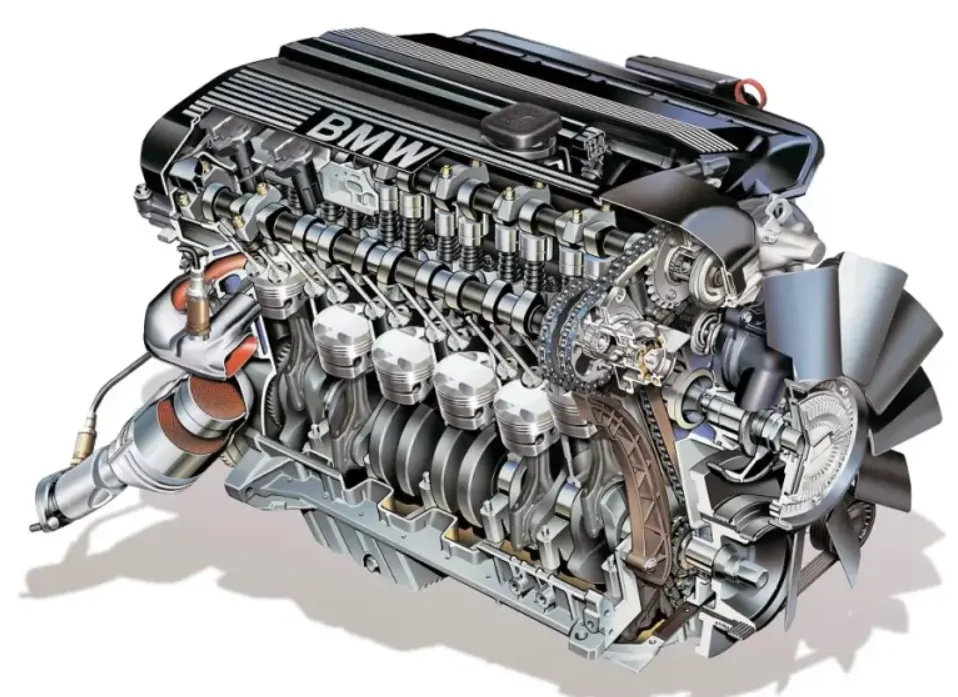
The M54 BMW engine is another non-reliable engine launched for the E-46 and Z-3 models. This engine reported various problems, including cooling issues, water pump failure, and expansion tank leaks. Some of the common problems reported by this engine are as follows:
- Loss of manifold swirl flap
- The problem with the EGR valve and sensor
Failure of Manifold Swirl Flap:
This is a common issue in diesel engines due to the lack of throttle bodies. These kinds of engines have swirl flaps that allow the air to pass from the intake manifold region in the engine.
These flaps can get clogged with debris and dust and disrupt the engine's functioning. The engine starts to deliver low power and does not work effectively.
It is therefore recommended to keep an eye on the working of swirl flaps and prevent the accumulation of debris and carbon deposits on them. Keep cleaning these flaps, and if the issue is due to some other fault, get it fixed with the help of an automobile expert.
Issue with the EGR Valve and Sensor:
This is also a common problem in this diesel engine. The EGR valve is an essential component that reduces the buildup of nitrogen oxide particles and the intake of toxins in the engine.
An electronic EGR valve includes a sensor that can operate the valves. But sometimes, this sensor can stop working, leading to the issue of checking the engine light and affecting an engine’s performance.
4. N20 BMW Engine:
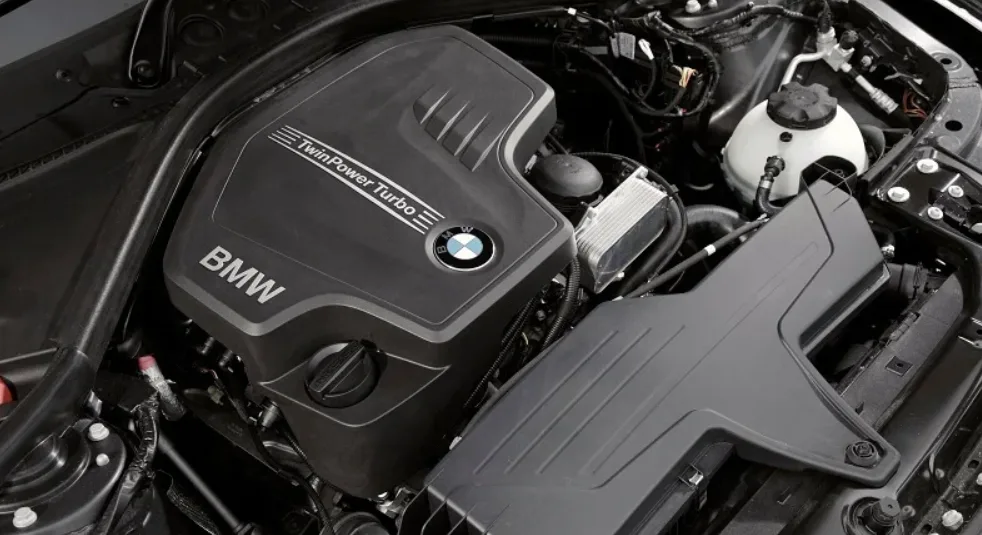
N20 BMW engine is another problematic engine for the BMW models introduced in the years 2012-2015. After its launch, it reported various problems, which led it to the category of non-reliable engines for BMW models. Here are the five most common BMW N63 engine problems:
Excess Consumption of Oil:
The BMW N63 engine shows the problem of excess oil consumption due to the engine’s design.
This engine’s turbo is in the middle of the V shape of the machine, which is a scorching area. The overheating in this area causes the oil to burn without draining the gaskets. This leads to leakage in the engine. It is recommended that burning a quart within 600 miles is enough oil for roasting in the BMW.
Failed Fuel Injectors:
The problem of fuel injector failure is considered a systemic issue in BMW’s N63 engine. It has been observed that most of the fuel injectors in the vehicle can cover more than 20K mileage in general and last longer than usual.
But sometimes, it shows symptoms that indicate an issue with the fuel injector and, if left untreated, can lead to fuel injector failure.
These symptoms include poor idling in the vehicle, lack of acceleration, formation of black residue on exhaust tips, presence of check engine lights, and malfunctioning engine misfiring.
Observing any of the symptoms mentioned above in the vehicle indicates an issue with the fuel injectors.
You can replace the fuel injectors with new ones, costing you around $300, including the labor cost.
Failed Timing Chains:
It has been noticed that timing chains are a component of the engine that is more prone to wear and tear and highly impacts the vehicle’s overall performance.
The timing chain has a belt that can stretch to some extent and can bend the cylindrical valves, which can cost a hefty amount to repair. There are symptoms such as poor idling or visibility of check engine lights.
It would help if you considered these symptoms to avoid engine failure in your vehicle, or you can seek help from an automobile expert. The repair cost can sometimes exceed $15000 in the case of BMW.
Leaks in the Valve Stem and Seals:
Observing a burning smell and smoke from the engine indicates a severe issue with your vehicle. The problem might be due to the leaking in the seals or valves of the machine that can cause the white smoke to come out of the car.
The valve and stem seals often fail in general and can lead to excess oil consumption and white smoke coming out from the exhaust pipes.
If you observe such an issue in your vehicle, you can replace or repair this part within $50-$60. It is better to seek help from a mechanic or an automobile expert to fix such issues.
Issues Related to Maintenance:
Maintaining the vehicle and its parts, like the engine, suspension, and brakes, can ensure its longevity, including the BMW.
There are some essential components like ignition coils and spark plugs, which, if maintained properly, can work properly in any vehicle.
It is recommended to keep an eye on the working of ignition coils and spark plugs and get them replaced after covering 40,000 miles. Poor ignition and spark plugs can increase the chances of misfiring the engine and poor idling in the vehicle.
5. S85 BMW Engine:
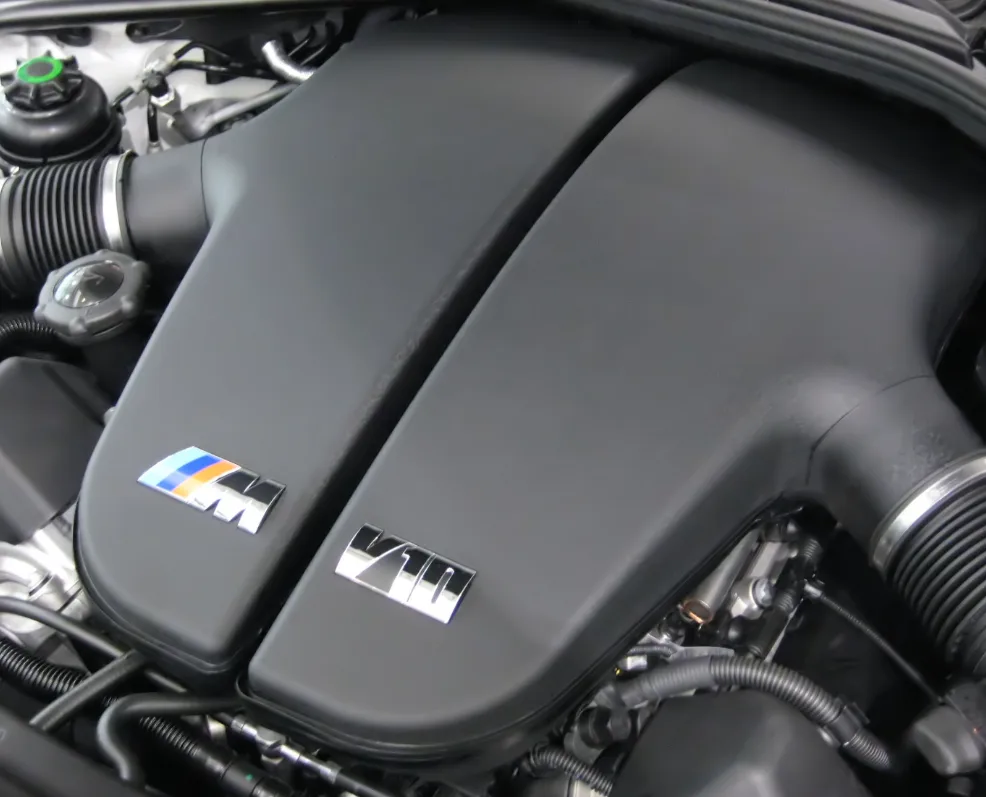
After its launch, THE S85 MW engine gained an excellent reputation as a reliable engine in the market. But, just like others, this engine also started to show the common problems that questioned its reliability for BMW vehicles.
Therefore, owners switched their choice from this engine, although it is not considered as a bad or least poor engine. Here, we will discuss the common problems which placed this engine in the non-reliable category.
- Problems with rod bearings
- Problems with the throttle actuators
- Issues due to SMG
- The problem of oil leakage
Problems with Rod Bearings:
The owners reported the poor rod bearings in the vehicle, which created issues for using this engine in BMW. The low ticking sound, metal shaving of oil, and engine failure can recognize poor rod bearings.
If you observe such symptoms, it is better to keep a notice and replace the rod bearing with a new ones.
It is recommended to replace the rod bearing after covering 80,000 miles. It can cost around $2000, including the labor for replacing this component, so it is a costly process.
Problems with the Throttle Actuators:
There are no specific symptoms that can indicate the failure of throttle actuators. However, it has been observed that the issues with the throttle actuators throw the limp mode and appearance of fault codes (CDC0, 2B57, and 2B21). The appearance of these signals can be considered a problem with the throttle actuators.
If you observe such issues, it is better to replace the throttle actuators, which can cost you around $650 for the pair. It is better to replace both teams with the help of an automobile expert who can charge you an extra $200-400 for the labor cost.
Issues due to SMG:
SMG transmission is an essential component in the engine, but problems can arise with it, including fault codes, malfunctioning lights, and slow transmission shifting.
It is recommended to seriously consider this issue if your engine is facing it because replacing or repairing the SMG parts is an expensive process. It can cost you around $1100, including the labor charges, which is only affordable for some.
The problem of Oil Leakage:
The problem of oil leakage can also disturb the owners of BMW vehicles. This engine has reported this issue, which is due to the exceptional usage of the car. It can lead to failing head gaskets and cracks in fuel and oil filters, creating overheating and oil leakage.
If you experience oil leakage issues due to cracks in the oil filters, get them inspected. It can cost around $25-30 for each gasket replacement, including the labor costs.
6. BMW N47 Engine:

Choosing a perfect engine with fewer flaws reported is essential so your vehicle can last longer. But still, as we know, no machine is ideal in the automobile market, and after some time, every piece can report various issues, so the same is the case with the N47 BMW engine.
This engine gained an excellent reputation in the market due to its specific specs and features, but later, some of the major engine problems questioned its reliability. So, here we categorize it in BMW’s engines, which should be avoided.
Common problems in BMW N47 Engine:
- Oil leakage issue
- Issues with ignition coil and spark plugs
Oil Leakage Issue:
The oil leakage issue in N47 BMW engines can arise due to oil leakage from components like valve covers and oil filter gaskets.
Valve cover gasket:
Excess heat and pressure accumulation inside the cover gasket can block the active motor. A sealing element in this gasket turns brittle and can create cracks. Oil starts to leak from these visible cracks, which disturb the working of this engine.
Oil filter gasket:
The oil filter gasket is another area from which oil can leak, a critical engine component. This region is responsible for maintaining smooth functioning and preventing the entry of unwanted particles that can disturb the engine.
The problems with these filters can disrupt the working of the N47 engine and make it a non-reliable engine, so it is better to get these areas checked and fixed if you own such an engine to avoid problems driving your BMW.
Issues with Ignition Coil and Spark Plugs:
Two other culprits make the working of the N47 engine non-reliable in BMW. These include the ignition coil and spark plugs, which can lead to poor idling and engine failure.
Ignition Coil:
is responsible for transforming the vehicle’s low- to high-voltage power and initiates the vehicle’s combustion process.
Problems with the ignition coil can disturb the supply chain and create misfires in the engine. This misfiring can also cause problems with the cylinder head. Other reason includes
Issue with Spark Plugs:
which are responsible for receiving the electrical energy and igniting the fuel mixture in the vehicle. The worn-out components can create improper mileage in the vehicle and lead to improper combustion in the cylinders. Therefore, inspecting the spark plugs regularly to increase their life span is recommended.
7. M60 BMW Engine:
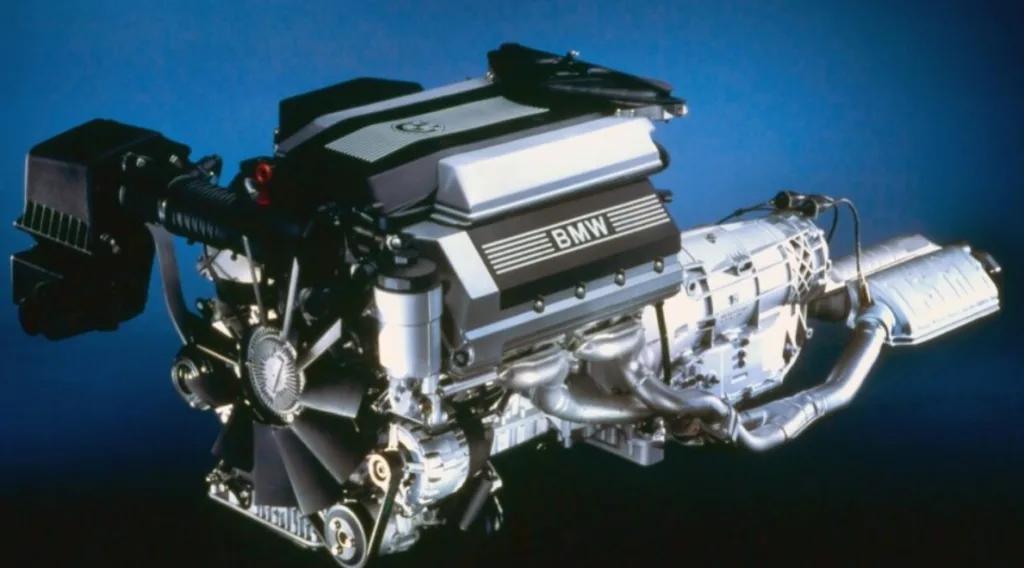
M60 BMW engine was considered a reliable engine for BMW, but after a while, the owners started reporting serious issues with this vehicle, which led to its non-reliability factor. This engine was the first V8 introduced by BMW two decades ago and is available with 3.0 and 4.0L fuel capacity.
They hold an extensive 215 horsepower and 282 horsepower, respectively.
But still, we cannot consider any engine perfect, so it also showed various common problems that questioned its reliability. There were no design and structural flaws in this engine, but wear and tear of components like gaskets, hose, and other plastic parts is a common thing that requires fixation.
Common problems with the M60 BMW Engine:
Owners reported the two major common problems frequently seen in the M60 BMW engine. These include:
- Damage to Nikasil’s lining
- Issue due to timing chain
Damage to Nikasil Lining:
Nikasil lining can get damaged due to the accumulation of high sulfur fuel. It can lead to loose compression in cylinders and cause damage to the cylindrical bores.
This issue can be identified with various symptoms, such as the loss of compression, misfiring in the engine, and rough idling in the vehicle.
If there is minor compression on a single cylinder, the issue can be dealt with, but if multiple cylinders are involved, the problem is worse, and the M60 engine will show starting issues. The only fix for this issue is to repair or replace the engine with a new one.
Issue due to Timing Chain:
The problems reported due to poor timing chain showed various symptoms that can be identified to address this problem. These symptoms include the presence of a knocking or rattling sound, misfiring in the engine, and the presence of a check engine light in the vehicle.
If you observe these symptoms, it can develop a slack in the timing chain, creating misfires in the engine.
Final Thought:
In the world of cars, it’s wise to be careful. Despite being powerful, these several BMW engines have some things to watch out for. So, as we pick our rides, let’s be smart, choosing reliability and smooth drives for every trip ahead, no matter the car model.
Also Read:
7 Most Reliable Mercedes Engines You Can Rely On- Details
5 Reliable Land Rover Engines You Can Surely Count On
7 Volvo Engine Models for Ultimate Driving Perfection
7 Most Reliable Audi Engines You Need to Consider
BMW’s 5 Most Reliable Diesel Engines You Can Truly Depend On
Frequently Asked Questions (FAQs):
Which BMW engines are not reliable?
Various BMW engines are not reliable, including the V10 engine. However, this engine holds excellent specs, including the rig and whooping power of 500 horsepower. But, the owners have reported endless engine issues, making it an unreliable option.
Which BMW engine is considered the most reliable?
The most reliable engine considered for BMW is the N52. Different aspects make this engine reliable, but the best ones are as follows:
- This engine lacks the option of a direct injection fuel pump.
- There is a lack of action of HPFP (high-pressure fuel pump)
- The lack of the actions mentioned above avoids carbon buildup in the engine.
Are there any engine problems associated with BMW engines?
Yes, there are various engine problems associated with the BMW engine, including:
- Malfunctioning in the fuel pump
- Failure in timing chains
Other than this, there are various other mechanical issues reported by the BMW engines that can lead to severe damage to the engine.
Is the N47 engine considered a lousy option for BMW?
The options and workings of the N47 engine depend on the usage of the vehicle. N47 is an excellent option for BMW owners, but the excess torque load leads to timing chain issues, making it the worst choice.

This is Surya. I am an experienced off-roader. I have been off-roading for many years across several terrains. I am passionate about 4×4 driving and want to share my knowledge and experience with others.
My goal is to provide you with the most comprehensive and unbiased information about off-roading.
I curated this article through my personal experience and expertise, and I hope it helps you with what you are looking for.

 (+91)9123743026
(+91)9123743026
 24/1 Nibedita Sarani. M.B. Road, Kolkata- 700051, India
24/1 Nibedita Sarani. M.B. Road, Kolkata- 700051, India